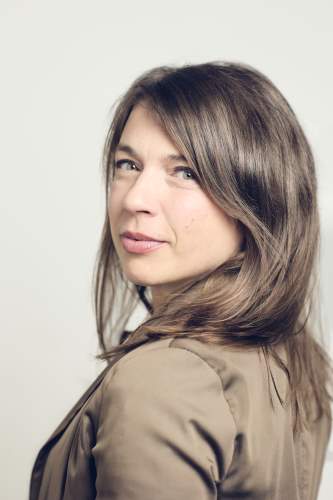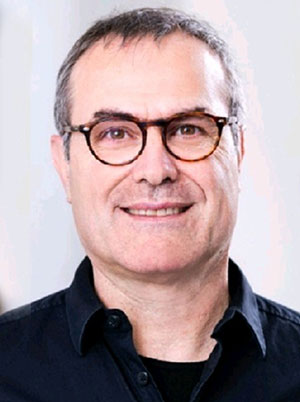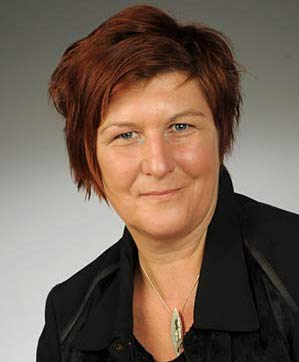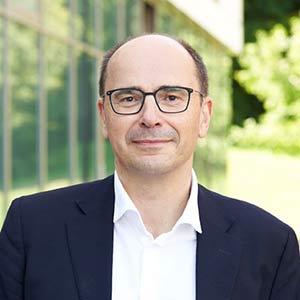“Leadership Matters” – the podcast series for good leadership
Most people have a pretty good idea of what bad leadership looks like. But what makes a good leader? Are good leaders born or is “leader material” something that we learn throughout our careers? Why bother taking another leadership training?
We discuss these and related questions with outstanding experts from research and practice in our newest podcast series “Leadership Matters” in cooperation with Faculty@TUM. This podcast series is in German. Subscribe on Spotify, Apple Podcasts or Google Podcasts so as never to miss an episode.
Episode 4
Leading in Conflict Situations – Achieving Fairness and Team Strength through Clear Communication
How does the way we approach conflicts influence our leadership behavior and teamwork? In this episode, we talk to psychologist and mediator Dr. Janine Netzel from the Munich Center for Leadership. Together, we delve into the world of conlict management, exploring how clear communication, fairness, and a proactive attitude can help defuse conflicts early on and foster a strong team culture.
Dr. Janine Netzel explains why we should not demonize conflicts but instead see them as growth opportunities. She also shares practical tips on how leaders can improve their own conflict resolution skills while serving as role models for their team.
About the expert:

Dr. Janine Netzel has been a professor of business psychology at the International School of Management in Munich since 2019. She also works as a mediator, consultant, managing director, and co-founder at the Munich Center for Leadership GmbH. She completed her doctorate (Dr. phil.) at the Ludwig Maximilian University of Munich with a focus on power and perspective-taking as factors in hierarchical and interdisciplinary cooperation, particularly in the context of university medicine. Her practical and research interests center on topics such as leadership and power, team development, and conflict management.
Episode 3
Leadership and mistakes: How to get over them and remain constructive?
Mistakes happen, no matter how hard we try to avoid them. Worse, the same mistakes happen over and over again, making our learning curve look pretty bad. This dynamic is no different in teams, leaving leaders scratching their heads about what went wrong and what they could do differently in the future.
In this episode, two managers share their experiences in a fictional role play: Thomas Loosen, systemic therapist and former head of the HRO (high reliability organisation) centre at the Gösgen Nuclear Power Plant in Switzerland, meets actress Franziska Ball, who takes on the role of the other manager. They start by describing the problem and what helped them resolve it over time.
About the experts:

Dr. Thomas Loosen is a systemic consultant and therapist. He completed his further training in this field at the International Society for Systemic Therapy in Heidelberg and at the Technical University of Kaiserslautern. He previously set up and managed the HRO (high reliability organization) center at the Gösgen nuclear power plant in Switzerland. He developed new training programs to change the inner attitude towards oneself, the team and tasks/ assignments in order to reduce misconduct. In doing so, he broke new ground in the development of the safety culture. Dr. Thomas Loosen ran his own practice for systemic therapy and consulting in Switzerland.

Franziska Ball, born and raised in Munich, received her acting and singing training in Munich and New York. For years, the actress and singer has been touring Germany with her duo BALL & JABARA with self-produced music cabaret theater pieces and has already won several cabaret awards. In addition to film and television roles, she teaches at the University of Music and Performing Arts in Munich and works as a narrator for audio books, audio films and Bavarian Radio.
Episode 2
Leadership and reintegration after a mental health crisis: What does a sustainable return to work look like?
How can leaders and teams help shape a sustainable return to work after a mental health crisis? In this episode, we discuss with Ute Schröder, an expert in occupational integration management, the different phases of the reintegration process and related best practices for managers and teams.
Contrary to popular belief, this process does not start on the first day back to work, but rather while the employee is still on sick leave. The active involvement of various stakeholders over a longer time period, including direct supervisors, team members, and occupational health professionals, is therefore required. Ute Schröder also reports on her research and transfer projects with the Federal Institute for Occupational Safety and Health in Germany.
As a TUM employee you can find out more about the topic with the following resources:
About the expert:

“The success of reintegration depends not only on the returning employee, but also on the reaction of the company and the management in the team.”
Ute Beate Schröder is an expert in workplace integration management, a research associate at the Federal Institute for Occupational Safety and Health in Germany, and a freelance evaluator, social manager and researcher.
Episode 1
Leadership and health: Does bad leadership make people sick?
Why and how does the quality of leadership matter for (mental) health in general? In this episode, we speak with Prof. Dr. Harald Gündel, Medical Director of the Department of Psychosomatic Medicine and Psychotherapy at the University Clinic Ulm. We learn how body and mind react to the work environment. Is resilience the key to staying healthy? Prof. Dr. Gündel offers a different perspective on resilience in the organizational context. He talks about potential limits of resilience training and explains how good leadership can contribute to both resilient teams and resilient organizations.
As a TUM employee you can find out more about the topic with the following resources:
About the expert:

“Relationships as regulators: The quality of the relationships in which we live has an impact on the functioning of our biological systems.”
Prof. Dr. Harald Gündel is an expert in occupational mental health research. He is Medical Director of the Department of Psychosomatic Medicine and Psychotherapy at the University Clinic Ulm, certified psychiatrist, neurologist, and psychotherapist with a special qualification in pain therapy and psychoanalysis. His research focuses mainly on interventions in the workplace setting and in psychotherapy.
About the hosts of our podcast series “Leadership Matters”:

Episode 4: This podcast episode is hosted by Michelle Moos, Learning and Development Expert at the TUM Institute for LifeLong Learning. She completed her Master of Education at the University of Cologne in 2019 and is currently pursuing her doctorate at the Goethe University Frankfurt. Her research focuses on educational and training measures aimed at fostering multi-professional cooperation skills.

Episodes 1-4: Dr. Anna Brzykcy’s research focuses on leadership, new work, and mental health. She graduated from the University of St. Gallen with a PhD in Management and successfully completed a three-year program in systemic therapy at the International Society for Systemic Therapy in Heidelberg. Together with John Pye and Thomas Münch, she is one of the hosts of the TUM Institute for LifeLong Learning podcast. She has worked as a Learning and Development Expert at TUM Institute for LifeLong Learning.
Subscribe on Spotify, Apple Podcasts or Google Podcasts so as never to miss an episode.
Thumbnail artwork of the podcast series by © Katharina Quitter.
Do you want to take the next step in leadership?
We offer various further education programs for professionals in the field of leadership that combine research and practice:
Overview of certificate programs in Leadership & Strategy
Overview of the Executive MBA programs

